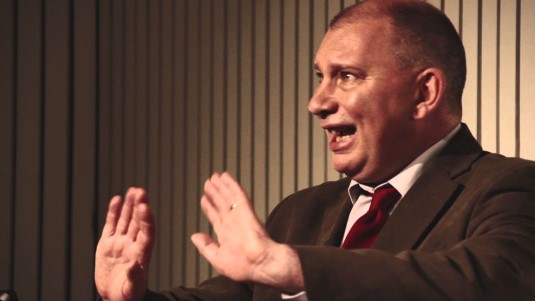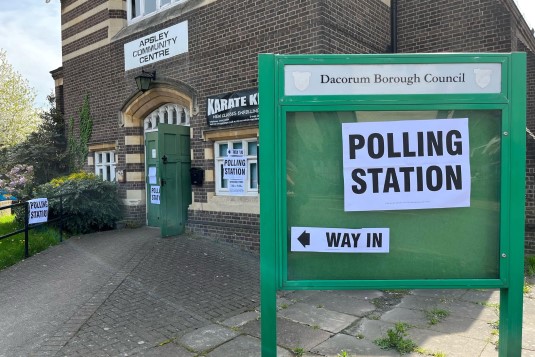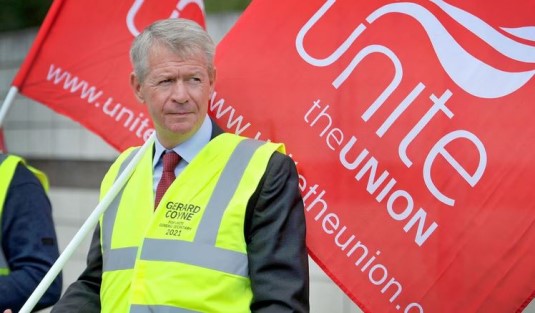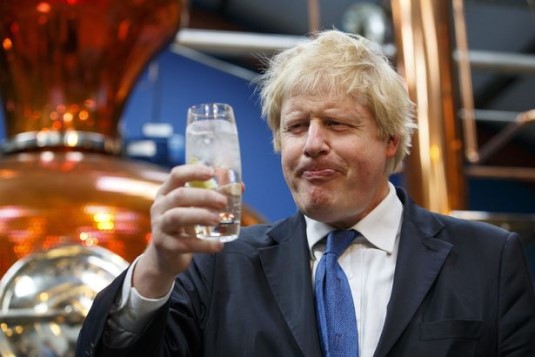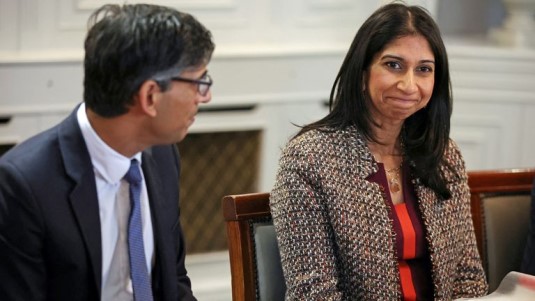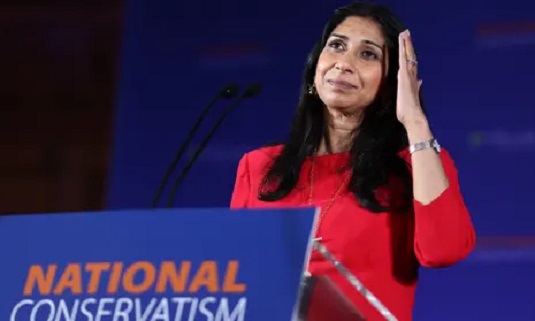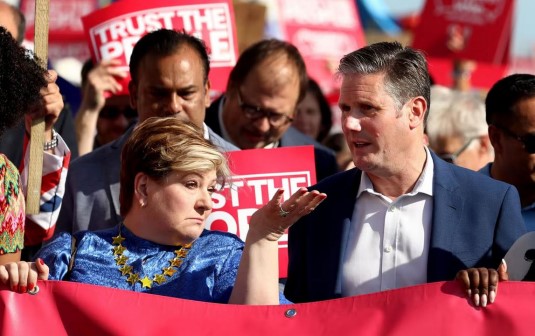
As with Starmer's proclamation on matters Europe, the role he played in splitting the Labour Party and trying to reverse Brexit are far down the memory hole. He writes that during the campaign he found plenty of Leave voters wanted the same sorts of things he did: "a better health service, better jobs, better wages, more security, a sense of control over their lives and their communities." A pity he wasn't as keen on upholding their votes when he spent the subsequent three years telling leavers they were wrong and he knew better than them. But when there is a leadership to win, disrespecting a referendum vote and shepherding one's party down the path to an historic defeat were but trifles next to his ambition.
But this isn't just about buttering up the declining Express's Tory-voting readership. It's an effort to close Brexit off as a political issue. Starmer wants to concentrate on Tory mismanagement of Brexit, the betrayal over levelling up, the grandiose promises, and the damage inflicted on the economy. This becomes much more difficult if the question of Brexit is reopened, despite polling registering record levels of Bregret. With the Tories flailing and consumed by more Boris Johnson mess, what would be helpful is something for them to rally around. As their war on woke efforts resonate with few people who aren't Tory journalists, re-opening Brexit would be like manna from heaven. Memories of Starmer's second referendum campaigning would be revived and Labour would have a more difficult time of it. Why turn into a long hard road when an easier, smoother shortcut to office is available?
This isn't without cost. Neutralising Brexit to the right re-opens it to the centre and the left. While the campaign to rerun the referendum had ulterior motives between 2016 and 2019, that wasn't the case for the hundreds of thousands who marched, who protest voted in the EU election debacle, who supported overturning the acceptance of Brexit in the Labour Party, and who backed Starmer on the strength of his European credentials. In the scheme of things, it is reasonable for Starmer to assume that dunking on this constituency will have fewer immediate consequences than antagonising leave opinion. And that's true. If losing council by-elections to the Liberal Democrats and the Greens is the butcher's price, that's entirely acceptable. After the election is when it will become difficult as continuity remain becomes an oppositional current, and one both these parties can exploit. But that's a problem for then.
Image Credit
